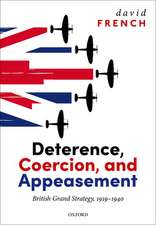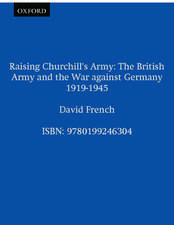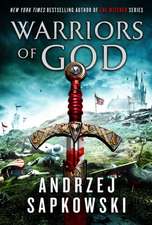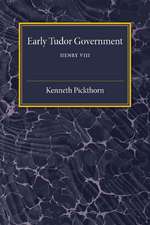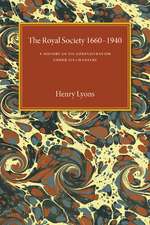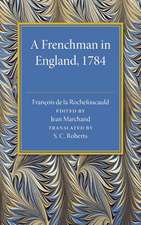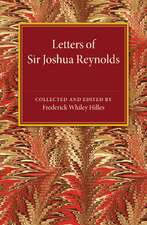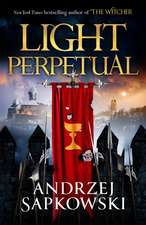The British Way in Counter-Insurgency, 1945-1967
Autor David Frenchen Limba Engleză Hardback – 29 sep 2011
Preț: 847.35 lei
Preț vechi: 1156.37 lei
-27% Nou
Puncte Express: 1271
Preț estimativ în valută:
162.21€ • 168.86$ • 133.54£
162.21€ • 168.86$ • 133.54£
Carte tipărită la comandă
Livrare economică 20-27 ianuarie 25
Preluare comenzi: 021 569.72.76
Specificații
ISBN-13: 9780199587964
ISBN-10: 0199587965
Pagini: 304
Dimensiuni: 156 x 236 x 30 mm
Greutate: 0.62 kg
Editura: OUP OXFORD
Colecția OUP Oxford
Locul publicării:Oxford, United Kingdom
ISBN-10: 0199587965
Pagini: 304
Dimensiuni: 156 x 236 x 30 mm
Greutate: 0.62 kg
Editura: OUP OXFORD
Colecția OUP Oxford
Locul publicării:Oxford, United Kingdom
Recenzii
David French's authoritative...exemplarily fair-minded study...should be compulsory reading for modern British officers
Brilliant...French explodes the myth that a uniquely British quest to recruit "hearts and minds" made the British end of Empire easy.
a sobering and timely book ... Professor French marshals an impressive volume of archival research ... fluent and always engrossing
a brilliant book that sheds light on a misunderstood and misquoted era ... masterly
a careful, often riveting book that has been constructed on the basis of rigorous archival research. French takes on a major task, insisting on a sweep of place and time that must have demanded he tackle an intimidating quantity of archival material, and the results are frequently a testament to modern historical scholarship.
French's book represents the first comprehensive reassessment of the violence used by the British across the entire range of these insurgencies
Based on unparalleled research into official documents on nine campaigns it is likely to be the authoritative work on the subject for years to come ... Indeed, Professor French has set the bar very high, and that can only be a good thing for the rest of us who yet labour in these contested trenches.
His counter-insurgency volume is ... likely to become the standard work on the subject. Thankfully, he avoid the temptation to adapt the book to the contemporary concerns of the academic-military-industrial complex.
Brilliant...French explodes the myth that a uniquely British quest to recruit "hearts and minds" made the British end of Empire easy.
a sobering and timely book ... Professor French marshals an impressive volume of archival research ... fluent and always engrossing
a brilliant book that sheds light on a misunderstood and misquoted era ... masterly
a careful, often riveting book that has been constructed on the basis of rigorous archival research. French takes on a major task, insisting on a sweep of place and time that must have demanded he tackle an intimidating quantity of archival material, and the results are frequently a testament to modern historical scholarship.
French's book represents the first comprehensive reassessment of the violence used by the British across the entire range of these insurgencies
Based on unparalleled research into official documents on nine campaigns it is likely to be the authoritative work on the subject for years to come ... Indeed, Professor French has set the bar very high, and that can only be a good thing for the rest of us who yet labour in these contested trenches.
His counter-insurgency volume is ... likely to become the standard work on the subject. Thankfully, he avoid the temptation to adapt the book to the contemporary concerns of the academic-military-industrial complex.
Notă biografică
David French was at the University of York and the War Studies Department at King's College London. He spent 27 years at University College London before taking early retirement in 2008 to become a full-time writer. Professor French is the author of six previous books, and has been the recipient of the Arthur Goodzeit Prize of the New York Military Affairs Symposium. He is a three-time winner of the Templer Medal awarded by the Society for Army Historical Research. He is a Fellow of both the Royal Historical Society and the Historical Association, and a member of the editorial board of the Journal of Strategic Studies, and the Council of the Army Records Society.


